main navigation start
Toggle navigation
- Resources
- Search
main content start
Search Filters
Sharex Sites List
Language
Topics
Topics
- Accountability (1)
- Child Health (1)
- Climate, Energy and Environment (10)
- Community engagement (1)
- COVID-19 (2)
- (-) Disability (13)
- Disaster Risk Reduction (2)
- Education (2)
- Emergency Response (1)
- Gender (9)
- Humanitarian Response (1)
- Mental Health (1)
- Migration (1)
- Nutrition (2)
- Partnerships (1)
- Peacebuilding (2)
- Social Behaviour Change (3)
- Social Protection (1)
- Sustainable Development Goals (2)
- UNICEF Programming (5)
- UN Water Conference (6)
- Urban (6)
- Water. Sanitation and Hygiene (114)
Resource Type
Document Type
- Academic journal articles (including pre-print submissions) (0)
- Agreements (0)
- Case studies, lessons learned, field notes (13)
- Corporate reporting (0)
- Data set (0)
- Evaluations (0)
- Forms and templates (0)
- Guidelines/SOPs/checklists (0)
- Human Interest Stories (0)
- Major publication (flagship, advocacy etc.) (0)
- Meeting documents and reports (0)
- Mobile Application (0)
- Monitoring reports (0)
- Newsletters (0)
- None (0)
- Online learning/e-learning course (0)
- Other technical publications and reports (0)
- Policy brief/briefing notes/fact sheets/FAQs (0)
- Posters, brochures, pamphlets, flyers (0)
- Presentation (0)
- Research report (0)
- Situation analyses (0)
- Situation reports (0)
- Speeches and Statements (0)
- Staff working paper/discussion paper (0)
- Strategies and Frameworks (0)
- Systematic reviews, knowledge mappings, evidence synthesis (0)
- Technical note (0)
- Toolkit/Toolbox (0)
- Training materials (0)
- Video (0)
Country
Published Date Range
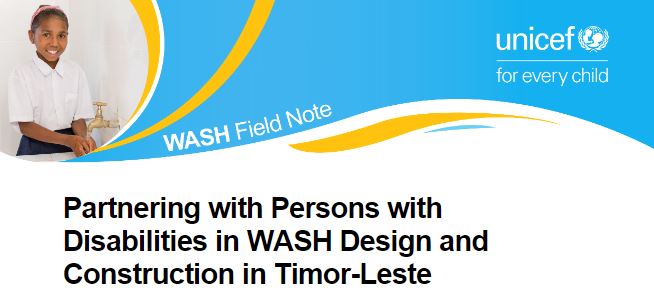
Case studies, lessons learned, field notes
Partnering with an organization of persons with disabilities (OPD) in Timor-Leste provided the UNICEF WASH programme with essential skills and expertise to strengthen the accessibility of new and exis...

Case studies, lessons learned, field notes
Partnering with an organization of persons with disabilities (OPD) in Timor-Leste provided the UNICEF WASH programme with essential skills and expertise to strengthen the accessibility of new and exis...
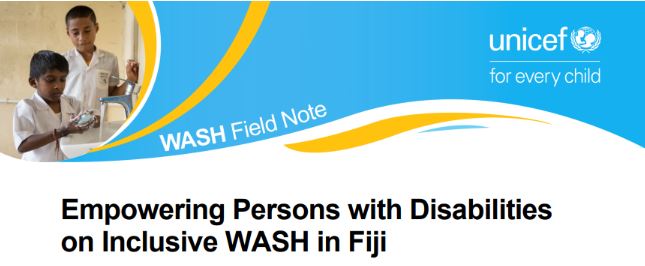
Case studies, lessons learned, field notes
East Asia and the Pacific is the most disaster-prone region in the world1 and is the most impacted region by multiple and overlapping climate shocks and hazards. In emergencies, children with disabili...
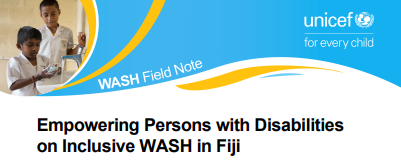
Case studies, lessons learned, field notes
East Asia and the Pacific is the most disaster-prone region in the world1 and is the most impacted region by multiple and overlapping climate shocks and hazards. In emergencies, children with disabili...
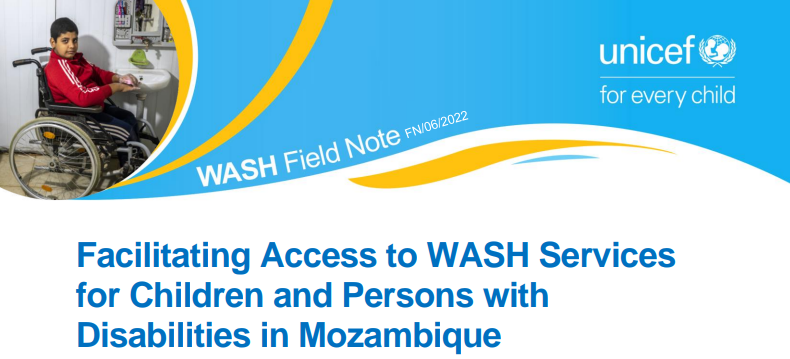
Case studies, lessons learned, field notes
This case study describes the experience of the UNICEF Mozambique Country Office in improving access to water, sanitation and hygiene (WASH) for children and persons with disabilities. The five projec...
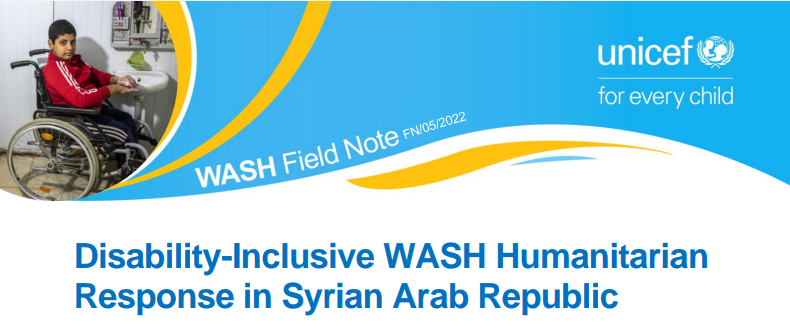
Case studies, lessons learned, field notes
The conflict in the Syrian Arab Republic has both increased the number of persons with disabilities and impacted persons with disabilities’ access to schools, water, sanitation and hygiene (WASH) infr...
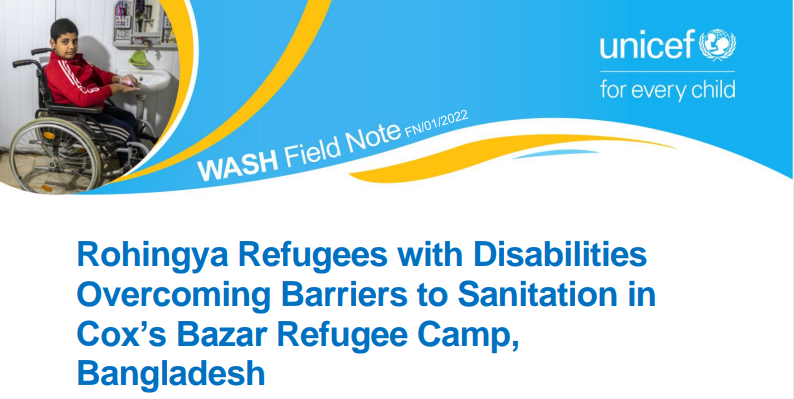
Case studies, lessons learned, field notes
Cox’s Bazar refugee camp, Bangladesh, has the highest concentration of refugees worldwide. Refugees with disabilities in the camp face challenges in accessing WASH facilities and latrines, particular...
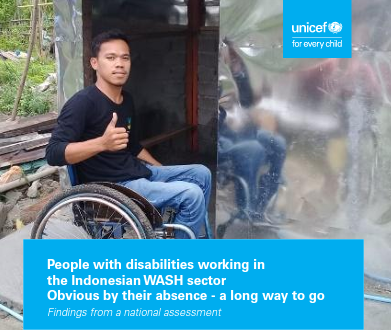
Case studies, lessons learned, field notes
This assessment on the situation of people with disabilities working in the WASH sector in Indonesia, aimed to understand the roles people with disabilities are currently undertaking in the sector and...
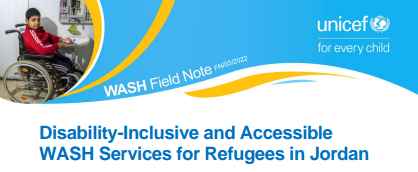
Case studies, lessons learned, field notes
UNICEF in Jordan provides humanitarian response to the affected population and water, sanitation and hygiene (WASH) services are one of the critical responses that UNICEF offers to refugees in camps, ...

